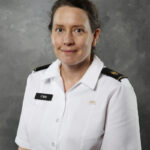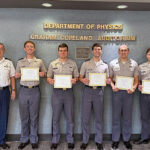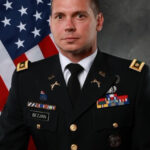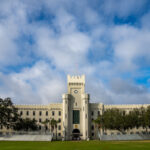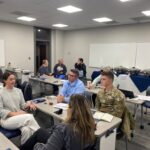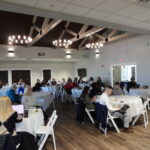February 2026 Notes from the Provost
Dear Faculty and Staff,
As we venture into a very cold February, there is much good news to report. At the Jan. 23 Friday afternoon dress parade, we awarded close to 750 Gold Stars to cadets and veteran day students who earned a 3.7 or higher grade point average for the fall semester. In addition, more than 1,600 cadets and students were named to the dean’s list for GPAs of 3.2 or higher.
Our students are not alone in their academic pursuits. David Preston, Ph.D., who serves as the Gen. Mark W. Clark distinguished chair of history and as director of the master’s program in military history, was published in the January/February issue of Smithsonian magazine. The article is part of a book project Dr. Preston is completing on George Washington.
Joseph P. Riley, Jr., ’64, who served as mayor of Charleston from 1975 to 2016, has recently published a memoir entitled Windows on Washington Square. Mayor Riley also taught at The Citadel from 2016 to 2024. His longstanding service to Charleston is an inspiration to our students.
Another revered public servant with ties to The Citadel who has also published a memoir is U.S. Rep. James Clyburn of Charleston. Congressman Clyburn was on campus Friday discussing his book The First Eight. Afterward, he took part in a review and attended a reception honoring The Citadel African American Alumni Association.
Please be sure to read through these news stories in this edition of Notes. Meet our new faculty, learn of department head appointments, academic achievements of our students and much more. Together, these stories highlight the impact of your work with our students.
On Thursday, Feb. 12, we will host a town hall meeting at 12:30 p.m. in Buyer Auditorium. I hope to see you there.
Until next time,
Brigadier General Sally Selden, Ph.D., SPHR
Provost and Dean of the College

